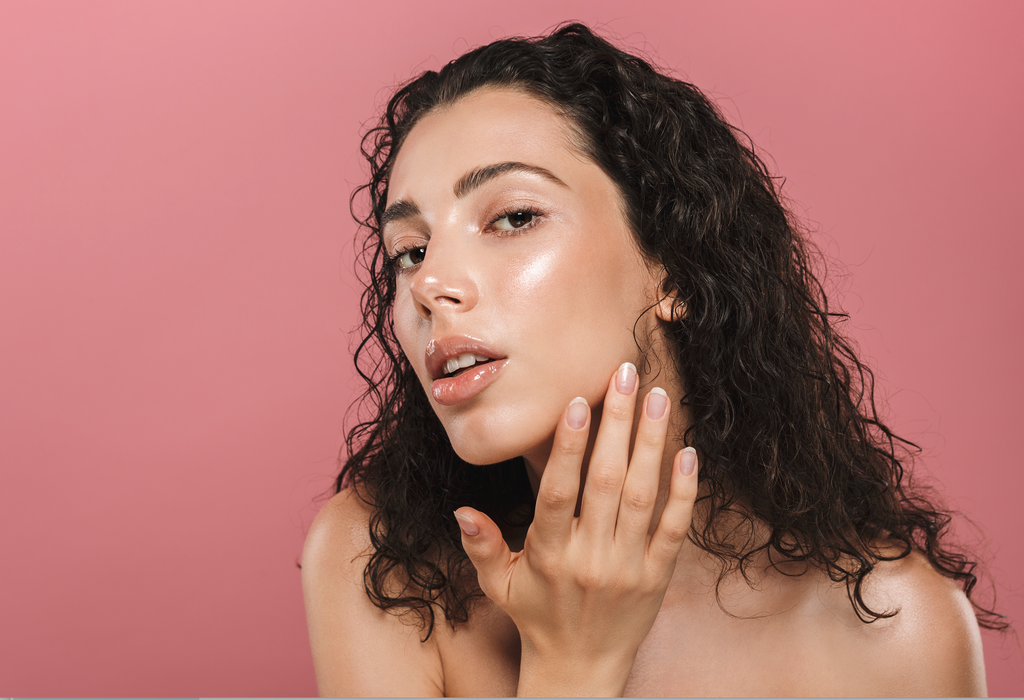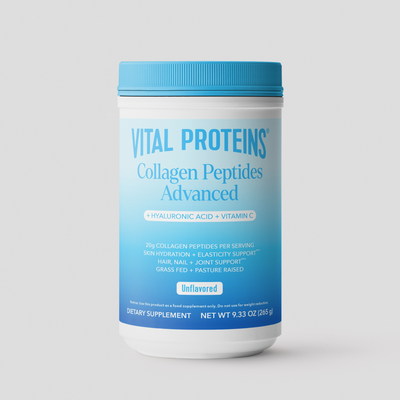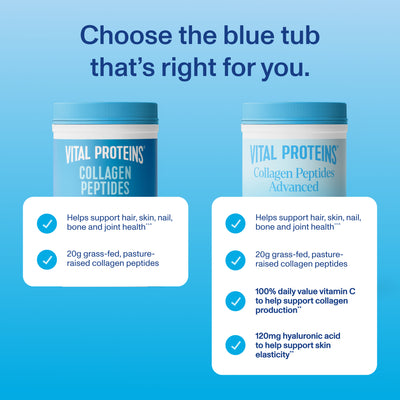You can think of your skin like a rubber band. As we age, thanks to years of smiling and frowning, it gets harder for the skin to bounce back into place, resulting in wrinkles, fine lines and sagging skin. Skin also gets thinner and less resilient as the years go on, which is why you don't see many adults walking around with baby-smooth skin (unless there's an Instagram filter involved). We believe in supporting your well-being — and that includes your skincare! — every step of the way, which is why we enlisted a skincare expert for her tips and recommendations. Keep reading to learn more.
What is the best skincare line for aging skin?
If you’ve ever browsed the beauty aisle at a pharmacy or department store — or even just flipped through a magazine — you already know there are tons of anti-aging skincare products on the market at varying price points. It can be really overwhelming to know what's worth your money. Here, Angie Seelal, a registered physician assistant at Advanced Dermatology PC, lists a few products she personally uses, loves and recommends to her patients:
- Skinceuticals CE Ferrulic holds a coveted patent on a blend of vitamin C, vitamin E and ferulic acid at a pH of 2.5 that conveys the most shelf-stable, effective version of the vitamin C possible to your skin.
- Tretinoin or Retin-A might just be the most highly researched and proven anti-aging ingredient there is. Curology makes obtaining a retinoid without a prescription easy for everyone.
- Pixi Glow Tonic contains glycolic acid, a type of AHA whose molecules are especially small, allowing them to go deeper into your pores than lactic or mandelic acids. The effect of the glycolic acid can be quite robust, so this product also boasts aloe vera and ginseng, which help calm the skin.

What products do dermatologists recommend for aging skin?
You probably already know that for your skin to look and feel your best, you should avoid the sun and (always!) remove your makeup before bed (no, sadly, a makeup wipe doesn't count). But do you know which ingredients and products are worth the splurge, and which ones you can skip? Below, Seelal shares her tips for products and ingredients recommended for aging skin.
- A broad-spectrum sunscreen to block harmful UVA and UVB rays.
- Ceramides are lipids that keep our outermost layer of our skin strong and healthy by sealing moisture into the skin.
- Collagen is the body's most abundant protein. It's responsible for providing structure and elasticity in the skin, hair, nails and more. Ingestible collagen is key if boosting your daily collagen intake is a goal.
- Glycolic acid helps boost levels of collagen and elastin in our skin.
- Hyaluronic acid is very popular right now. The ingredient acts like a sponge, drawing water to the area it's applied to, then traps it in the skin. This moisturizes and helps plump skin.
- Retinoid, a form of vitamin A, increases the rate at which your cells turn over (aka speeding up the exfoliation process).
- Vitamin C, an antioxidant, helps to neutralize skin-damaging free radicals, such as sun and pollution. It decreases the production of excess pigment in the skin, helping to fade spots and discoloration. It also helps to stimulate collagen production when used either topically or ingested.
What are the best skincare tips for people over 50?
When you're over 50, a simple cleanser and moisturizer may not deliver the results you're looking for. It's actually best to start using anti-aging products before you see noticeable wrinkles, but it's never too late to start.
"As we mature, our skin gets thinner and more delicate," Seelal tells Lively. "Facial massages can help sculpt facial muscles and help reduce fluid build-up." She adds that these massages, which you can do with your hands or with a tool like a gua sha or facial roller, improve blood flow, cell turnover, tissue toning, and they can help boost collagen. "Mild and non-irritating products should be used [to] avoid stripping the skin of its natural oils or irritating your skin. Nevertheless, scheduling an appointment with a dermatologist is always recommended," adds Seelal.

















